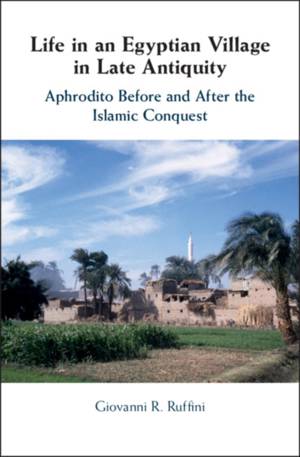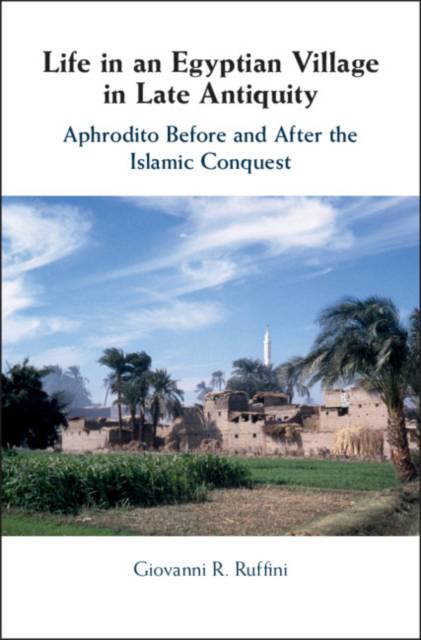
- Afhalen na 1 uur in een winkel met voorraad
- Gratis thuislevering in België vanaf € 30
- Ruim aanbod met 7 miljoen producten
- Afhalen na 1 uur in een winkel met voorraad
- Gratis thuislevering in België vanaf € 30
- Ruim aanbod met 7 miljoen producten
Zoeken
Life in an Egyptian Village in Late Antiquity
Aphrodito Before and After the Islamic Conquest
Giovanni R Ruffini
Hardcover | Engels
€ 60,95
+ 121 punten
Omschrijving
Most ancient history focuses on the urban elite. Papyrology explores the daily lives of the more typical men and women in antiquity. Aphrodito, a village in sixth-century AD Egypt, is antiquity's best source for micro-level social history. The archive of Dioskoros of Aphrodito introduces thousands of people living the normal business of their lives: loans, rent contracts, work agreements, marriage, divorce. In exceptional cases, the papyri show raw conflict: theft, plunder, murder. Throughout, Dioskoros struggles to keep his family in power in Aphrodito, and to keep Aphrodito independent from the local tax collectors. The emerging picture is a different vision of Roman late antiquity than what we see from the view of the urban elites. It is a world of free peasants building networks of trust largely beyond the reach of the state. Aphrodito's eighth-century AD papyri show that this world dies in the early years of Islamic rule.
Specificaties
Betrokkenen
- Auteur(s):
- Uitgeverij:
Inhoud
- Aantal bladzijden:
- 242
- Taal:
- Engels
Eigenschappen
- Productcode (EAN):
- 9781107105607
- Verschijningsdatum:
- 11/10/2018
- Uitvoering:
- Hardcover
- Formaat:
- Genaaid
- Afmetingen:
- 157 mm x 229 mm
- Gewicht:
- 476 g

Alleen bij Standaard Boekhandel
+ 121 punten op je klantenkaart van Standaard Boekhandel
Beoordelingen
We publiceren alleen reviews die voldoen aan de voorwaarden voor reviews. Bekijk onze voorwaarden voor reviews.







